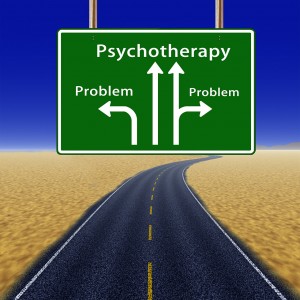Shame is not always an emotion that we can name for ourselves but that niggling feeling that something is wrong may be more familiar. This article gives an insight into shame and how it can affect our lives.
How Shame Contaminates Our Lives — and a Path Toward Healing By John Amodeo, PhD
~ 2 min read
Growing up, did you hear messages like, “What’s wrong with you? Can’t you do anything right? You’ll never succeed at anything!” Have these toxic criticisms left you with a subtle background feeling of shame? Or perhaps you learned to keep feelings inside because no one was interested in your inner world.
Until fairly recently, shame was neglected as a field of study in psychology. But there has been a growing recognition of how toxic shame stifles self-worth, inhibits intimacy, and keeps us suppressed.
Thomas Scheff, a sociologist at the University of California at Santa Barbara, refers to shame as the “master emotion, regulating the expression of other feelings.” As he put it:
”Whenever shame enters the picture, we inhibit the free expression of emotion, with the exception of anger … shame is the emotion most difficult to admit and to discharge.”
Being a master emotion means that shame contaminates our capacity to feel and express other emotions. It’s a cold blanket thrown over our feeling life. If we feel sad or hurt, our shame tells us that it’s not OK to be vulnerable and show sorrow or tears. If we’re afraid, our shame warns us that we wouldn’t want to be seen as weak, lest others might laugh at us, humiliate us, and not hold us in high regard.
A deeply held shame is often the water we swim in. It’s an elusive, privately-held feeling that we don’t like to acknowledge — a nagging sense that something is amiss, that we’re basically flawed, defective, unworthy, and less valuable than others. The philosopher Jean-Paul Sartre expressed the physiological effect of shame as “an immediate shudder which runs through me from head to foot without any discursive preparation.” Such shame damages self-worth and can go hand in hand with depression.
Shame Stifles Authenticity
As a result of shame’s toxic influence, we dissociate from painful or difficult feelings. Fearing the prospect of heart-rending criticism and unbearable isolation, we try to figure out who we need to be in order to be wanted and welcomed. Toxic shame gives birth to a false self that we hope will be accepted and loved. We craft a self who is smart, entertaining, beautiful, affluent — or who in some way will win respect or affection.
Sadly, during the process of polishing and parading this false self, we move further away from being who we really are. Heeding the voice of shame, we deprive ourselves of what we most deeply want.
Loving, intimate relationships can only flourish in a climate of authenticity. Intimacy is all about two courageous people revealing their authentic feelings and longings — being congruent and sharing what Gay and Kathlyn Hendricks call the microscopic truth of whatever they’re experiencing from moment to moment. Love grows as two individuals open their hearts and allow themselves to be seen for who they really are, which includes their strengths and limitations.
Healing Shame
As the saying goes, we can’t heal what we cannot feel. Healing shame begins by recognizing how it feels inside. When we’re about to express something that is true for us, do we notice our stomach tightening, our chest constricting, or our breath getting shallow? This may be our felt sense of shame. Or perhaps we’ll notice shame through the voice of our “inner critic” that tells us that to hold back because we don’t want to look bad or foolish.
An important step toward healing is to not be ashamed of having shame. Experiencing shame is simply part of being human. Shame even has a positive side — it tells us when we’ve violated someone’s boundaries or our own integrity — or hurt someone due to insensitivity. Sociopaths are shameless — they feel no remorse when they’ve violated others’ rights and sensibilities.
Shame heals as we make space for it and be mindful when it arises. “Oh, I’m noticing some shame coming up right now; that’s interesting.” By simply noticing it, we gain some distance from it and it’s no longer so overwhelming or crippling. We’re not so identified with it. We have shame, but we are not the shame. Creating some space around it, we’re no longer a hostage to it; we find an inner equanimity that enables us to act with greater freedom, openness, and courage.


